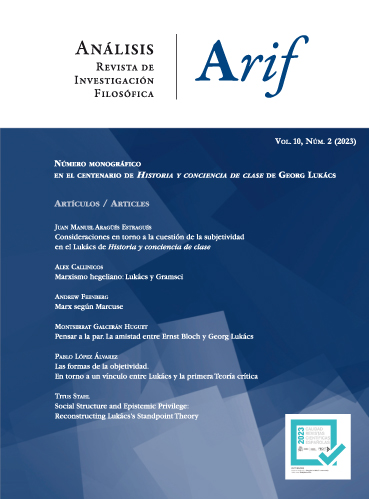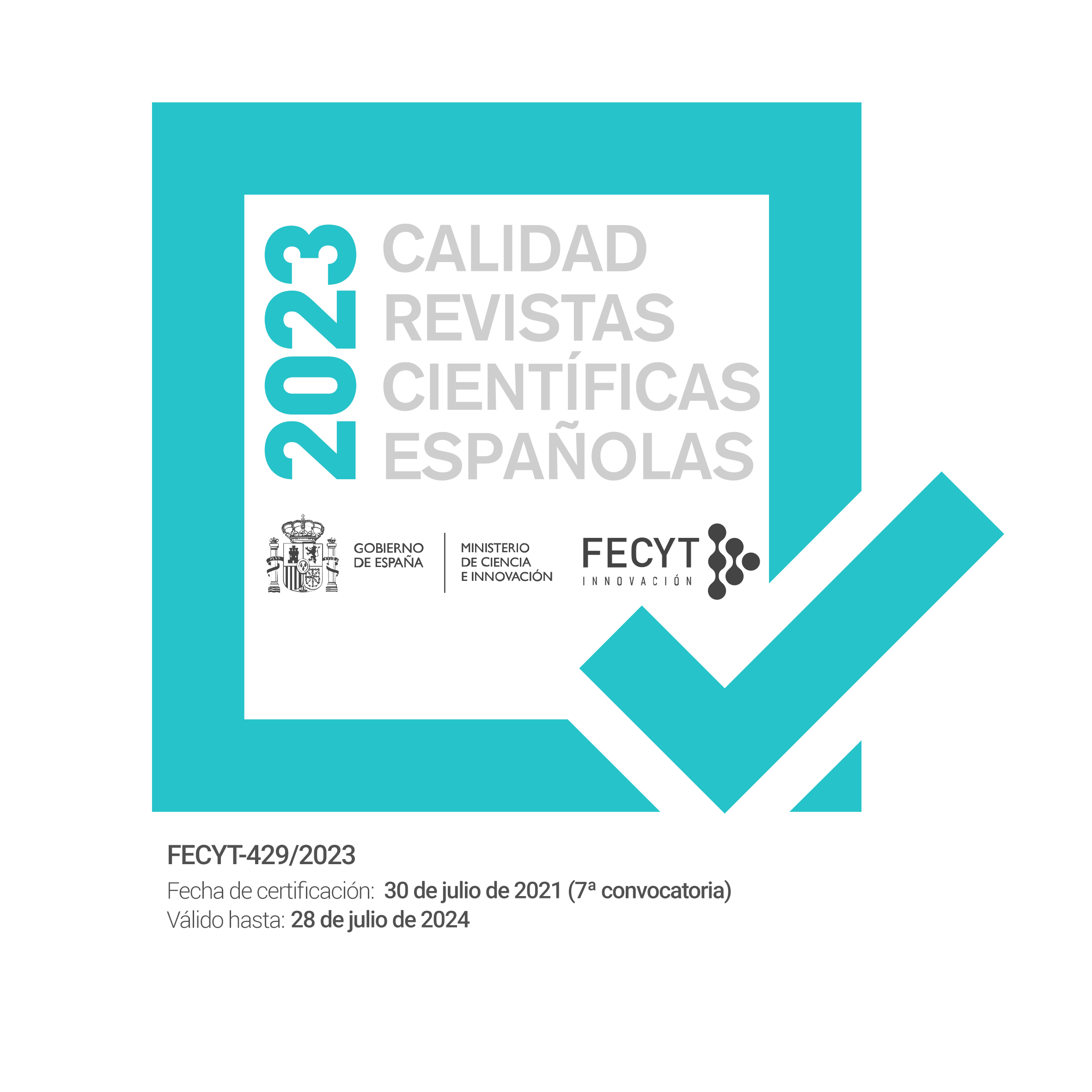The forms of objectivity
A connection between Lukács and early Critical Theory
DOI:
https://doi.org/10.26754/ojs_arif/arif.202329919Abstract
The theoretical significance of G. Lukács is not limited to his place in what is known as Western Marxism. His philosophical work up to History and Class Consciousness (1923) offers unique insights into the evolution of modern social forms, the possibility of their aesthetic and epistemological apprehension, and modes of individual and collective action. The reception of his work in the thinkers of early Critical Theory (Adorno and Benjamin) allows for a broader discussion of ways of interpreting the reified world and transforming it. The focus on the problems of objectification, reification and second nature has implications for a contemporary social ontology and theory of experience.
Downloads
Published
How to Cite
Issue
Section
License
Copyright (c) 2023 Pablo López Álvarez

This work is licensed under a Creative Commons Attribution-NonCommercial-NoDerivatives 4.0 International License.
Los autores que publican en esta revista están de acuerdo con los siguientes términos: los autores conservan los derechos de autor y garantizan a la revista el derecho de ser la primera publicación del trabajo al igual que licenciado bajo una Creative Commons Reconocimiento-No Comercial-Sin Obra Derivada 4.0 (CC BY-NC-ND) que permite a otros compartir el trabajo con un reconocimiento de la autoría del trabajo y la publicación inicial en esta revista. Los autores pueden establecer por separado acuerdos adicionales para la distribución no exclusiva de la versión de la obra publicada en la revista (por ejemplo, situarlo en un repositorio institucional o publicarlo en un libro), con un reconocimiento de su publicación inicial en esta revista.






